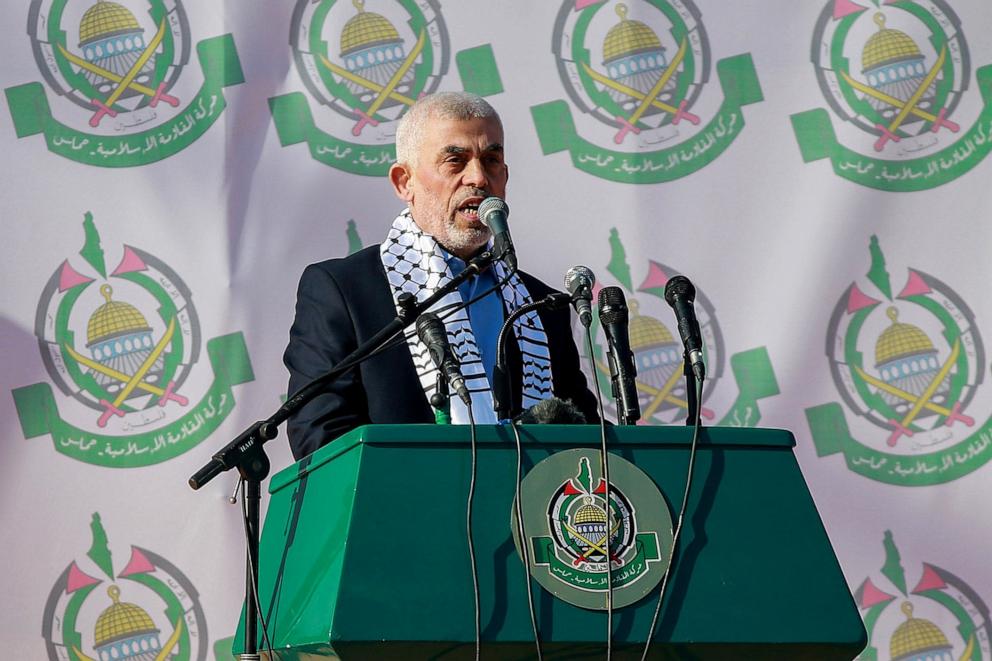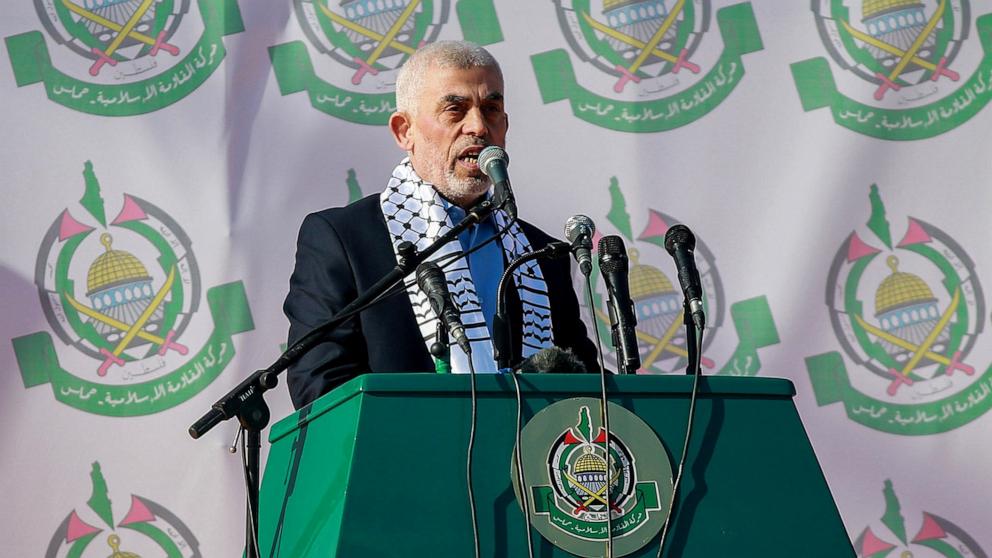What to know about Yahya Sinwar, the former Hamas leader
Yahya Sinwar, one of the key architects of the Oct. 7, 2023, attack on Israel, emerged over the summer as the de facto leader of the terrorist organization.
Israeli officials confirmed Thursday that Sinwar's reign, however, was short-lived. The 61-year-old leader of Hamas was one of three militants killed in an Israeli military strike in the Gaza Strip, Israel Foreign Minister Israel Katz said in a personal message to dozens of foreign ministers around the world.
"The master murderer Yahya Sinwar, who is responsible for the massacre and atrocities of October 7, was killed today by IDF soldiers," Katz said.
Sinwar had been among the top targets sought by Israel, which placed a $400,000 bounty on his head following the Oct. 7 surprise attack on Israel that left more than 1,200 people dead and 240 taken hostage.

Israeli officials announced on Aug. 1 that they killed Mohammed Deif, commander of Hamas' military wing, in a "precise, targeted strike" on July 13 in the southern Gaza town of Khan Younis. Deif and Sinwar were allegedly the masterminds of the Oct. 7, 2023, attack on Israel.
Sinwar was elevated to political leader of Hamas in Gaza in August after Iranian officials confirmed that the previous Hamas political leader, Ismail Haniyeh, was killed in a bombing at a guest house in Tehran, where he was staying while attending the inauguration of Iran's president-elect, Masoud Pezeshkian.
Haniyeh's death left Sinwar calling the shots for Hamas at a time when negotiations involving the White House have been underway for a cease-fire in Gaza and the release of the remaining Israeli hostages.
Sinwar had not been publicly heard from since late 2023, when Hamas and affiliated groups launched the surprise attack in Israel. It was believed that he was hiding in the vast network of Hamas tunnels under the Gaza Strip.

Sinwar helped establish Hamas in the late 1980s. In 1989, an Israeli court sentenced him to four life sentences for his role in killing suspected Palestinian informers and plotting to murder two Israeli soldiers. He spent 22 years in prison and was one of more than 1,000 Palestinian detainees who were released in 2011 in exchange for Israeli soldier Gilad Shalit, who had been held hostage by Hamas for five years.
At the time of his imprisonment, Sinwar was head of Hamas' infamous internal security arm, Al-Majd. Israeli and Palestinian sources told ABC News that his job was to investigate members of Hamas who were potentially working with the Israelis.
In an interview with ABC News in December, Michael Koubi, a former officer in Shin Bet, Israel's internal security organization, said he interrogated Sinwar, while he was a prisoner, for more than 150 hours.
Koubi described Sinwar as "tough" and devoid of emotions but "not a psychopath."
Koubi told ABC News that Sinwar -- dubbed "the butcher of Khan Younis," for the town in Gaza that he was from -- boasted during his interrogations about killing suspected Palestinian informants with "a razor blade" and "a machete."
In 2017, six years after his release from an Israeli prison, Sinwar was elected the overall chief of Hamas in the Gaza Strip.
Sinwar's ideology and long-term hatred toward Israel were what motivated him to attack the country on Oct. 7, according to Koubi.
Following the attack on Israel, Israeli Prime Minister Benjamin Netanyahu said on Dec. 6 that it was "only a matter of time" before Sinwar was located. Israeli military leaders had described him as "a dead man walking."
Koubi told ABC News in December that he expected Sinwar would eventually go down fighting, saying Sinwar wanted to "die a hero of the slum, as a hero of Hamas, as a hero of the Gaza people."




